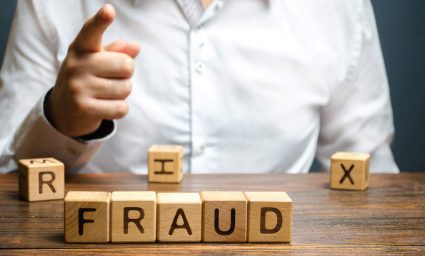 Facing financial difficulties can be an overwhelming experience, leading many to seek quick solutions that may offer immediate relief. During such challenging times, it is common to encounter offers that seem beneficial, but they can often be deceptive traps set by fraudsters. While we consistently warn against predatory practices like high-interest payday loans, it’s vital to exercise caution when presented with seemingly legitimate financial assistance options. Many scams are cleverly designed to take advantage of your financial desperation, enticing you with promises of easy money that can ultimately lead to more significant financial troubles and distress.
Facing financial difficulties can be an overwhelming experience, leading many to seek quick solutions that may offer immediate relief. During such challenging times, it is common to encounter offers that seem beneficial, but they can often be deceptive traps set by fraudsters. While we consistently warn against predatory practices like high-interest payday loans, it’s vital to exercise caution when presented with seemingly legitimate financial assistance options. Many scams are cleverly designed to take advantage of your financial desperation, enticing you with promises of easy money that can ultimately lead to more significant financial troubles and distress.
Currently, a wide range of scams target individuals facing financial hardships, emphasizing the importance of staying informed and vigilant. One key principle to remember is that if an offer sounds too good to be true, it likely is. In this detailed guide, we will explore various scams that prey on those experiencing financial strain, equipping you with the knowledge to differentiate between authentic opportunities and deceitful schemes. Understanding these dangers is your first line of defense against becoming a victim of financial fraud.
Empower Yourself: Understand Your Rights Regarding Tax Refund Claims
There are legitimate channels available for claiming tax refunds related to various work-related expenses such as tools, uniforms, and travel mileage. However, it is essential to engage with reputable tax rebate service providers, which often requires you to provide them access to your tax records. Be aware that no government agency, including HMRC, can determine your eligible refund without your active involvement or consultation with a qualified tax professional. Therefore, proceed with caution if you receive unsolicited messages claiming that “HMRC has a tax refund of £261 waiting for you.” These messages are often crafted to appear credible, using realistic figures to draw you in while leaving you vulnerable to scams that can lead to identity theft or significant financial loss.
To verify whether such messages are legitimate, take the time to examine the sender’s details carefully. If you receive a text, confirm the originating phone number to ensure it is valid. It is advisable not to respond to suspicious messages and instead reach out to HMRC directly for clarification. Remember, HMRC typically communicates through formal letters or emails sent to your registered address, rather than unsolicited text messages. Moreover, you now have the ability to access your online tax account, where you can find direct notifications from HMRC. If you receive an email, scrutinize the sender’s address closely; it should come from an official HMRC domain. Always avoid clicking on any links in messages that seem dubious.
Stay Alert: How to Identify and Avoid the National Insurance Number Scam
Recent reports, including those from the Daily Express, have highlighted that many individuals have fallen victim to the National Insurance scam, which primarily operates via phone calls. This particular scam is notable in that it can reach you on either your landline or mobile device. The con typically begins with a frantic message claiming that your national insurance number has been compromised, creating a false sense of urgency that pressures you to press a button to connect with someone who can assist you. However, this action often results in incurring premium call charges while the scammers gather your personal information, making it a dangerous trap.
To assess whether such a call is a scam, keep in mind that legitimate organizations will never require you to press a button to continue the conversation. If you are in doubt, simply hang up and conduct a quick online search for the phone number displayed. A brief investigation can often reveal whether the number is associated with known scams, allowing you to safeguard your personal information and finances.
Protect Yourself: Identifying the DPD or UPS Delivery Scam
Another common scam involves receiving unexpected texts or emails stating that a parcel requires your attention. These communications typically urge you to click on a link to provide personal information, which is a significant warning sign of potential fraud. To protect yourself, scrutinize the source of the email closely. Scammers often use distorted or unusual email addresses that do not correspond to legitimate businesses. Additionally, review any recent orders you’ve made on platforms like Amazon or eBay; these services usually provide comprehensive tracking information for your shipments.
It is also important to be aware that while carriers such as DHL may impose duties on international orders, they will always provide clear details regarding your shipment and its origin. If you receive vague messages about package deliveries without having placed any recent orders, exercise extreme caution. Staying informed about personal finance scams is crucial to ensure you do not fall victim to such schemes. If you find that financial struggles make these scams appealing, consider reaching out to us for assistance; we offer debt consolidation loans for bad credit. Our team is dedicated to helping you navigate your financial challenges safely and effectively.
The Article Finance Scams to Watch Out For Was Found On https://limitsofstrategy.com




Comments are closed